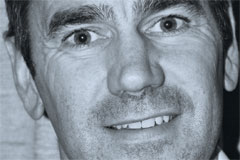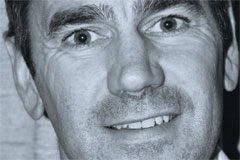We can’t afford not to look after ourselves


I had cause to consult my own GP last year and once again was struck by his calm, reassuring demeanour, despite me seeing him as an ‘urgent extra’ on the day after a Bank Holiday weekend when his practice was a partner down.
He looked like the sort of guy who would be unfazed by polishing off an afternoon surgery before picking up three kids from four different locations, and nipping home to prepare soup for the homeless shelter and 100 people in Brighton. Maybe he just has restful holidays? A week on a Caribbean beach?
I sometimes visualize this as I drive our car packed to the rafters with three kids, a dog, trailer, camping equipment and seven bikes down to the north of Spain for our annual recharging of the batteries.
I’m sure we’ve all been there – hideous days at the practice chasing your tail wondering why nobody else is around. How do we keep it up – that outward look of calm and concentration on the clinical issue facing us whilst our brain is working on a multitude of other conundrums at the same time?
Chasing a patient back down the corridor yelling ‘no, YOU’RE the idiot’, before hurling a pulse oximeter at them is probably a sure sign that things are not going well
I think we are all different and have our own personal coping strategies but events in our practice over the past year have caused us to examine this more closely. How can we withstand the increasing flow, with diminishing resources and individuals succumbing to the mounting pressure?
Well, step one is recognising those warning signs in ourselves and our colleagues – and the changes may be subtle. Chasing a patient back down the corridor yelling ‘no, YOU’RE the idiot’, before hurling a pulse oximeter at them is probably a sure sign that things are not going well (for doctor or patient), but life is rarely that clear-cut.
Looking out for colleagues involves going out of our way even when we are busy, checking in with them daily, casting an eye over their mounting workload, listening to staff who have raised concerns, and then hopefully giving them some space as and when they need it. This, of course, is the difficult bit as there is generally no slack in the system, but if they fall down the consequences are much worse.
There are resources out there to help, such as Resilient GP and the excellent NHS Practitioner Health Programme. Both of these have been a help in our practice and I would urge readers to look at them if you or colleagues might be struggling.
So whether your downtime relaxation involves flower arranging, abseiling, crochet, playing music, cycling in the Alps, walking the dog or simply putting your feet up with a good book, try to find some time each week for yourself, but also for those around you who may be more overloaded than you think.
Time is what we lack most, a precious resource, but we have to do this.
We simply cannot afford not to.
Dr Richard Cook is a GP partner in Hurstpierpoint, West Sussex. You can follow him on Twitter @drmoderate
Pulse July survey
Take our July 2025 survey to potentially win £1.000 worth of tokens












